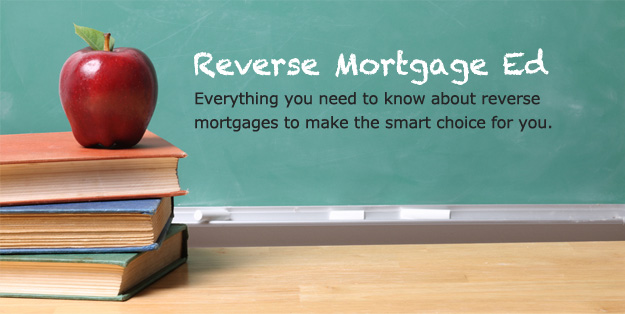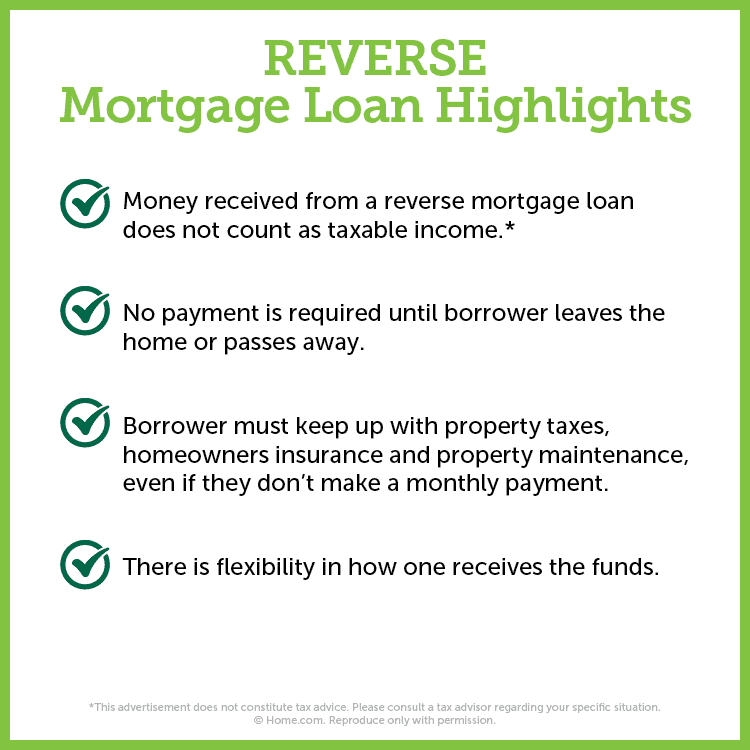Empower Your Retired Life: The Smart Way to Acquisition a Reverse Home Mortgage
As retirement strategies, several individuals look for effective techniques to enhance their economic self-reliance and health. Among these techniques, a reverse mortgage emerges as a sensible option for house owners aged 62 and older, permitting them to touch right into their home equity without the necessity of regular monthly repayments.
Recognizing Reverse Home Mortgages
Understanding reverse home loans can be critical for property owners looking for economic flexibility in retired life. A reverse mortgage is an economic item that enables qualified house owners, commonly aged 62 and older, to transform a portion of their home equity into money. Unlike conventional home mortgages, where customers make regular monthly payments to a lending institution, reverse home loans make it possible for homeowners to get payments or a swelling amount while keeping ownership of their building.
The quantity offered through a reverse home mortgage depends upon several factors, including the property owner's age, the home's value, and existing rates of interest. Importantly, the loan does not need to be repaid till the homeowner offers the home, moves out, or passes away.
It is important for possible consumers to recognize the implications of this financial item, including the impact on estate inheritance, tax obligation considerations, and recurring obligations connected to home maintenance, tax obligations, and insurance coverage. Additionally, counseling sessions with accredited experts are frequently required to guarantee that debtors fully understand the terms of the lending. Overall, a detailed understanding of reverse mortgages can encourage property owners to make enlightened decisions concerning their financial future in retired life.
Benefits of a Reverse Home Mortgage
A reverse home loan supplies a number of compelling advantages for eligible homeowners, specifically those in retirement. This economic tool allows elders to convert a portion of their home equity right into cash, offering vital funds without the need for monthly mortgage payments. The money gotten can be made use of for various functions, such as covering medical expenses, making home renovations, or supplementing retirement revenue, therefore boosting overall economic flexibility.
One substantial benefit of a reverse home mortgage is that it does not require repayment up until the home owner vacates, markets the home, or dies - purchase reverse mortgage. This feature makes it possible for retirees to preserve their lifestyle and meet unanticipated costs without the burden of regular monthly settlements. Additionally, the funds received are normally tax-free, permitting home owners to use their money without concern of tax obligation ramifications
Moreover, a reverse home loan can offer assurance, understanding that it can work as a financial safeguard during challenging times. Homeowners also maintain ownership of their homes, ensuring they can proceed staying in an acquainted setting. Eventually, a reverse home loan can be a critical funds, encouraging senior citizens to handle their funds efficiently while appreciating their gold years.
The Application Refine
Browsing the application procedure for a reverse mortgage is a vital step for house owners considering this monetary option. The initial stage entails examining eligibility, which normally needs the property owner to be at the very least 62 years old, very own the residential property outright or have a reduced home loan balance, and inhabit the home as their primary house.
As soon as qualification is verified, property owners need to undergo a therapy session with a HUD-approved counselor. This session guarantees that they completely understand the effects of a reverse home loan, including the responsibilities included. purchase reverse mortgage. After completing therapy, candidates can proceed to gather essential documents, including look here evidence of earnings, possessions, and the home's worth
The following action requires submitting an application to a lending institution, who will analyze the economic and residential or commercial property credentials. An appraisal of the home will additionally be performed to determine its market price. If accepted, the lender will present financing terms, which should be examined carefully.
Upon acceptance, the closing process complies with, where last documents are signed, and funds are disbursed. Comprehending each stage of this application process can considerably boost the homeowner's self-confidence and decision-making regarding reverse mortgages.

Key Factors To Consider Prior To Purchasing
Investing in a reverse home mortgage is a significant monetary choice that calls for careful consideration of a number of vital elements. Initially, understanding your qualification is critical. House owners should be at least 62 years old, and the home must be their primary residence. Assessing your financial needs and objectives is similarly crucial; identify whether a reverse home loan aligns with your long-term strategies.

In addition, evaluate the influence on your existing lifestyle. A reverse mortgage can affect your eligibility for specific federal government advantages, such as Medicaid. Seek professional assistance. Consulting with a monetary consultant or a real estate therapist can give important understandings customized to your individual scenarios. By extensively evaluating these considerations, you can make a much more educated decision regarding whether a reverse home loan is the ideal monetary method for your retired life.
Maximizing Your Funds
Once you have actually safeguarded a reverse home loan, properly handling the funds comes to be a concern. The versatility of a reverse home home loan allows homeowners to make use of the funds in different methods, however strategic preparation is vital to maximize their benefits.
One crucial method is to create a budget plan that outlines your financial objectives and monthly expenditures. By determining necessary costs such as health care, real estate tax, and home upkeep, you can assign funds as necessary to guarantee lasting sustainability. Additionally, take into consideration utilizing a section of the funds for investments that can create income or appreciate with time, such as dividend-paying supplies or common funds.
Another crucial aspect is to preserve an emergency situation fund. Setting apart a get from your reverse home loan can aid cover unexpected costs, supplying comfort and monetary security. Seek advice from with a financial consultant to discover feasible tax ramifications and just how to incorporate reverse mortgage funds into your general retired life strategy.
Ultimately, sensible monitoring of reverse mortgage funds can improve your economic security, enabling you to appreciate your retired life years without the stress of monetary uncertainty. Cautious planning and informed decision-making will guarantee that your funds work efficiently for you.
Conclusion
To conclude, a reverse mortgage presents a practical monetary technique for seniors seeking to enhance their retired life experience. By transforming home equity right into obtainable funds, people can attend to crucial expenditures and safe and secure added monetary resources without incurring monthly payments. Nonetheless, mindful factor to consider of the connected terms and ramifications is important to make the most of benefits. Ultimately, leveraging this economic device can help with greater self-reliance and improve total high quality of life during retired life years.
Comprehending reverse mortgages can be vital for property owners looking for financial adaptability in retirement. A reverse home mortgage is a monetary item that allows qualified homeowners, commonly aged 62 and older, to convert click here for info a section of their home equity right into cash. Unlike typical mortgages, where consumers make monthly settlements to a lender, reverse home mortgages enable home owners to get payments or a lump amount while keeping possession of their residential property.
Overall, a comprehensive understanding of reverse home mortgages can encourage property owners to make educated choices about their economic future in retirement.
Consult with a monetary advisor to check out possible tax implications and how to integrate reverse mortgage funds right into your total retired life method.